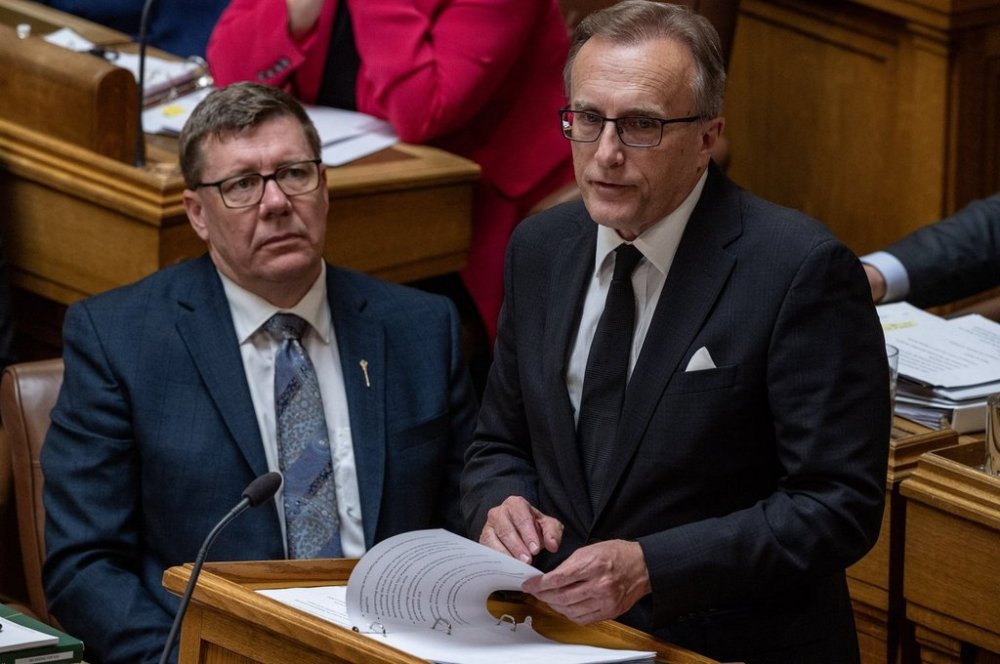Saskatchewan finance minister to deliver midterm update on budget
Advertisement
Read this article for free:
or
Already have an account? Log in here »
To continue reading, please subscribe:
Monthly Digital Subscription
$0 for the first 4 weeks*
- Enjoy unlimited reading on winnipegfreepress.com
- Read the E-Edition, our digital replica newspaper
- Access News Break, our award-winning app
- Play interactive puzzles
*No charge for 4 weeks then price increases to the regular rate of $19.00 plus GST every four weeks. Offer available to new and qualified returning subscribers only. Cancel any time.
Monthly Digital Subscription
$4.75/week*
- Enjoy unlimited reading on winnipegfreepress.com
- Read the E-Edition, our digital replica newspaper
- Access News Break, our award-winning app
- Play interactive puzzles
*Billed as $19 plus GST every four weeks. Cancel any time.
To continue reading, please subscribe:
Add Free Press access to your Brandon Sun subscription for only an additional
$1 for the first 4 weeks*
*Your next subscription payment will increase by $1.00 and you will be charged $16.99 plus GST for four weeks. After four weeks, your payment will increase to $23.99 plus GST every four weeks.
Read unlimited articles for free today:
or
Already have an account? Log in here »
REGINA – Saskatchewan Finance Minister Jim Reiter is set to deliver the midterm update on this year’s provincial budget today.
Premier Scott Moe’s government had forecast a modest $12-million surplus when the budget was introduced.
But it has since revised expectations and as of August expected the final budget number to be a $349-million deficit.

Reiter said at that time the numbers remain volatile as Saskatchewan and other jurisdictions ride out the peaks and valleys of global uncertainty, including Chinese tariffs on canola.
The first-quarter update pegged total expected revenue for the year at $20.9 billion and expenses at $21.2 billion.
Non-renewable resources revenue was projected to decline by $30 million compared with the budget because of lower oil prices and a higher exchange rate.
This report by The Canadian Press was first published Nov. 25, 2025.

